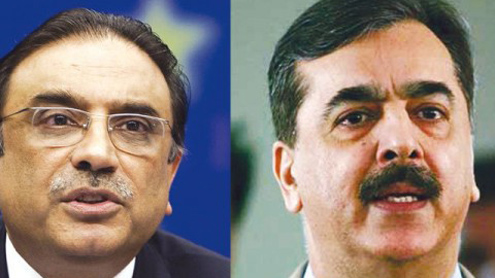
By deciding to nominate a new prime minister instead of going for early elections, the PPP has indicated its intention to complete the remaining nine months of its tenure.
The road it has decided to take is fairly bumpy. There are indications that some of PPP’s s allies are keen to extract a price for supporting its new nominee. There are reports for instance of the PML(Q)and MQM seeking some of the powerful or lucrative ministries. The only disincentive that can restrain the allies from gouging is the threat of fresh elections which PPP might extend if driven to desperation.
The Supreme Court has the last word on the interpretation of law. There are, however, weighty issues that cannot be pushed under the carpet. For instance, has the verdict strengthened the system? The SC has no doubt established that it can remove the elected chief executive of the country. The verdict was followed by an unhappy polarisation between the provinces which does not bode well for the system. In Punjab, it led to jubilation in several cities. In Sindh, there were protests in nearly every major city except Karachi.
The Speaker of the KP Assembly adjourned the session in remonstrance on hearing a report of the verdict. The government too needs to ponder over the consequences of its stubborn stance over writing to the Swiss government. The ongoing tussle between the judiciary and the executive is likely to continue with the induction of a new PPP prime minster. This implies the continuation of the standoff between the SC and the new chief executive for the next nine months. This carries serious implications for the system.
Questions have also been raised about the fate of the decisions taken by Gilani after April 26, the date from which he stands disqualified. These include the appointment of 17 judges on Gilani’s recommendations.The SC decision has been described as a soft coup and a judicial blow to parliament. This raises the questions whether the judges need to keep in view the social consequences of their decisions when dealing with issues relating to the Parliament. Is the axiom “Let justice be done though the heavens fall” relevant in the world of today? -Pakistantoday











